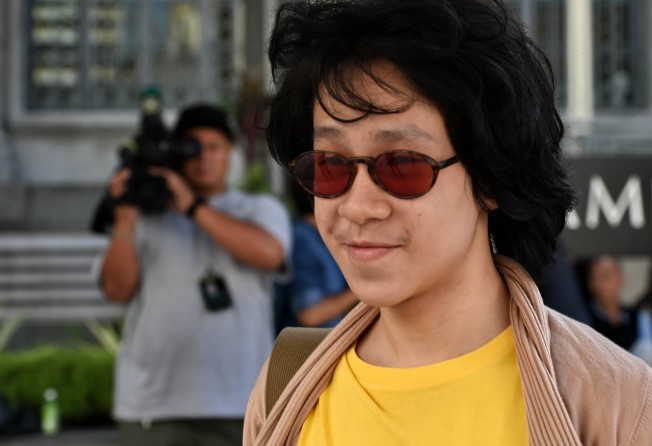Gag on alternative voices shows up Singapore's insecurity
Toh Han Shih says the government must rethink its intolerance of interpretations of history that differ from its own, as well as its harsh treatment of some of those who speak up

The Singapore government is playing up a celebratory remembrance of Singapore history, prompted by the upcoming 50th anniversary of the founding of the Southeast Asian state on August 9 and the death of the country's first prime minister, Lee Kuan Yew, on March 23. In this version of history, Singapore overcame threats like communism to rise from a third world slum to a first world financial hub.
But the withdrawal of state funding for a comic book on Singapore history and the banning of a Singapore movie on dissidents show its leaders are insecure about allowing competing interpretations of history.
In May, the Singapore National Arts Council withdrew its S$8,000 (HK$46,000) grant for a graphic novel on Singapore history, titled The Art of Charlie Chan Hock Chye, by illustrator Sonny Liew. Explaining the decision, the council's senior director of literary arts, Khor Kok Wah, said: "The retelling of Singapore's history in the work potentially undermines the authority or legitimacy of the government … and thus breaches our funding guidelines."
Last year, the Singapore authorities banned the local distribution of a documentary film, To Singapore, with Love, by filmmaker Tan Pin Pin. The documentary focuses on political exiles who had been involved with student activism or communism. The movie won Tan at least two international awards.
However, Singapore Prime Minister Lee Hsien Loong, the eldest son of Lee Kuan Yew, said, "Why should we allow them, through a movie, to present an account of themselves not of documentary history objectively presented, but that is a self-serving personal account, conveniently inaccurate in places … which will sully the honour and reputation of the … brave men and women who fought the Communists to create today's Singapore?"
Multiple interpretations of history are unavoidable. Competing accounts of the same event should be allowed to coexist.
Although Winston Churchill is widely revered among Britons as their greatest prime minister, some historians have alleged he was racist. Whether Churchill was racist or not, the point is that the British government permits such debate over venerated figures. Likewise, the Singapore leaders should be confident enough to allow versions of history that do not accord with their own.
Singapore leaders, including the late Lee Kuan Yew, have cited religious and racial harmony as a pretext to restrict freedom of expression. In giving reasons for cutting funding for the graphic novel, Khor did not cite religious or racial reasons, but frankly admitted the comic "undermined" the Singapore government. Similarly, Tan's documentary contained nothing that could be deemed offensive on racial and religious grounds. Beyond race and religion, there is a wide field of topics that should be open to legitimate debate.
One Singaporean charged with offending religion is 16-year-old Amos Yee. A few days after Lee Kuan Yew died in March, he posted online an expletive-laced video criticising Lee and Christianity, as well as an obscene image of Lee and Margaret Thatcher.
In May, a Singapore court found Yee guilty of two charges - for making offensive remarks against Christianity and for circulating obscene imagery. A third charge for Yee's statements on Lee Kuan Yew was withdrawn.
Yee taunted the government in his video: "If Lee Hsien Loong wishes to sue me, I will oblige to dance with him. Come at me, motherf*****".
His taunt is a potential trap for Singapore's leaders. If they handle this boy in a harsh and clumsy manner, it may backfire by costing them votes in the next election, which must take place before early 2017.
Toh Han Shih is a former Post reporter